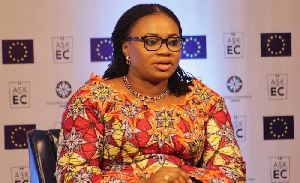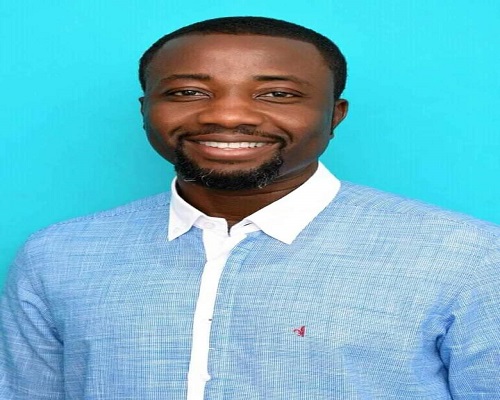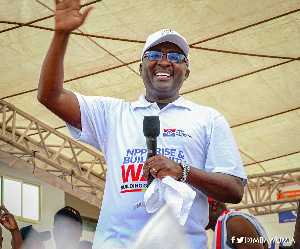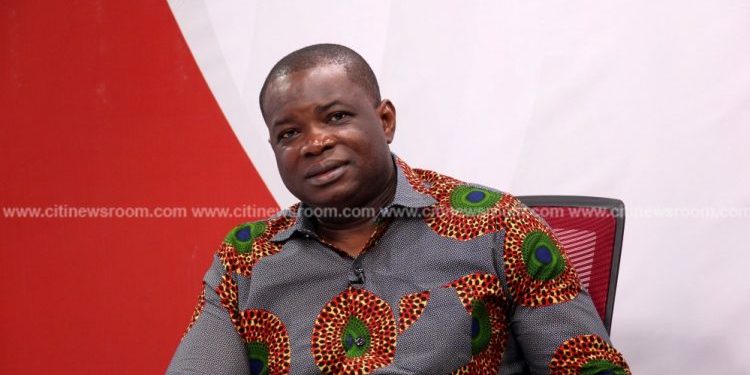POLITICS
JSCs Gerrymandering Ruling Betrays Ghana’s Democracy – Jacob Osei Yeboah
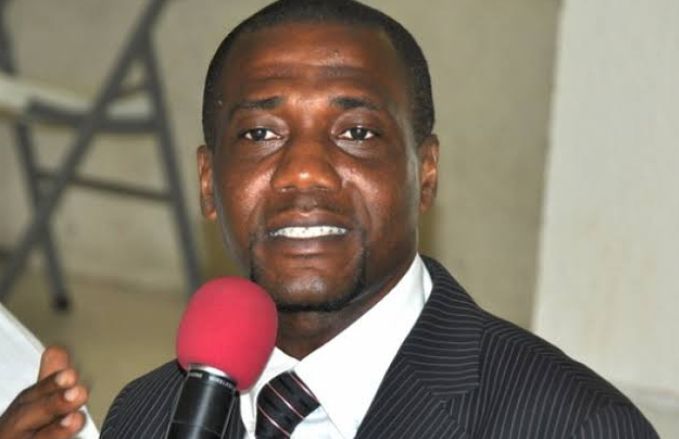
JSCs Gerrymandering Ruling Betrays Ghana’s Democracy
JOY Comments on SC Ruling-Deputy Speaker Voting.
On Monday, March 21, on Net2 TV, The Seat, with Justice Kwaku Annan, I commented from common sense perspective, on the ruling by the seven Justices of Supreme Court (JSCs) on whether the Deputy Speakers can vote whilst Presiding over Parliament.
No matter anyone’s opinion position on the ruling, we need to understand that currently per the ruling of JSCs, it is now a law for Deputy Speakers to vote whilst Presiding over proceedings of Parliament until there is appeal and subsequent self correction by the SC.
The JSCs justifiable arguments can be summarised by three points; I) MPs cannot be denied of their constituents votes in decisions of Parliament. II) Other Parliamentary Democracies allow their Speakers to Vote and even some Speakers of these other democracies are MPs. III) 30 years application of Parliament’s SO 9(3) pronounced unconstitutional due to challenges of 8th Hung Parliament.
As noted in my book, ‘The Next President Of Ghana’ p19, “The modernist’s mindset always asks the question ‘How we will change?’ but seldom asking, ‘How will we stay the same?’ “
The commonsense approach should have been what decision would maintain the same principle of voting for the past 30 years irrespective of Parliament’s composition? How will our JSCs rule if majority in Parliament is the opposition Party? Or if 138 in the Hung Parliament had been the opposition Party? What if nonpartisan or Independent Presidential Candidate forms the executive Arm of government?
The JSCs looked at the ruling from half-empty position in the democratic glass by depicting what has been working in other democracies by searching for how can we change?
The commonsense position is looking at the issue from half-full position in the democratic glass which reinforces the foundation of what has prevailed in the past 30 years of Ghana’s democracy by searching for how will we remain the same?
Especially, whether there are constitutional provisions and Standing Orders in Parliament that are consistent to help reinforce unclear interpretation without gerrymandering and to help guide the JSCs to make righteous ruling.
The JSCs to me have not erred in their ruling with supporting facts, but all their arguments are alien to Ghana’s experience in the 4th Republic and has to gerrymander to make sense of their ruling.
The ruling therefore made Ghana’s democracy subservient to other democracies and that is subjugating ruling job for lack of reinforcement of 30 years experience of Ghana’s Parliament decisions.
The ruling suffers TELM syndrome , (The Enslaved Leadership Mindset). Can we file a suit at the SC to annul all decisions taken by Parliament for the past 30 years when the Speaker was absent with Parliament’s SO 9(3)? Definitely no! That makes the ruling an open ended argument for definite implementation. Why am I saying so from the perspective of commonsense school of thought?
Article 115 of the 1992 constitution states that ” *There shall be freedom of speech, debate and proceedings in Parliament and that freedom SHALL NOT be impeached or questioned in any court or place outside Parliament”.*
Article 115 is consistent and reinforces, Article 110(1) which also states “Subject to the provisions of this constitution, Parliament may, by Standing Orders, regulates its own procedure”.
The JSCs may not have done a thorough research for the TELM ruling of the unconstitutionality of Parliament SO 9(3) which states, “A Deputy Speaker or Any other member presiding shall Not retain his original vote while Presiding”.
Article 110(1) is consistent with Parliament SO 9(3) which reinforces the clarity to any person who assumes the Speaker’s role per Article 104(2), “The Speaker shall have neither an original nor CASTING vote”.
Which interpretation is easier, the TELM syndrome with gerrymandering interpretation that have to import other democracies alien to Ghana’s for justification or reinforcing existing decisions?
Article 130(1b) and Article 2(1) mandates the SC the jurisdiction and interpretation but when it comes to Parliament, the SC has to be guided by Article 115 in their ruling on SO 9(3) unconstitutionality and open ended ramifications on decisions made by Parliament when the Speaker was absent. My penny commonsense question to JSCs is whether in line of Article 115, do they have the mandate to impeach of question SO 9(3)?
The 1992 constitution has maintained a clear Speaker’s position with no vote cast and reinforced by Article 110(1) for same for any Presiding Member of Parliament in decision voting with SO 9(3).
Ghana is missing the opportunity to maintain the Principles of voting for the past 30 years for all possible scenarios of future composition in Parliament . The spirit of the constitution maintains a principled pattern of voting irrespective of who is a minority or majority. That Principle is that whoever assumes the Speaker’s seat loses his voting right.
The JSCs ruling is short sighted in a scenario that Nonpartisan/Independent Presidential Candidate won an election, Ghana will become ungovernable? That assumption reduces the gumption of MPs to robotic manipulations. A principle maintains nature irrespective of the prevailing circumstances. We expect MPs to use their gumption with patriotic urge to build consensus with Ghana First motivation instead of myopic party manipulations.
Moreover, from commonsense and half-full perspective Article 102 of the 1992 constitution is consistent and reinforces the neutrality of any person (MP) Presiding even in quorum formation, Article 102, “A quorum of Parliament, apart from the person presiding, shall be one-third of all the members of Parliament.” Again, Article 97(1b) maintains that an MP shall vacate his seat in Parliament “If he is elected as Speaker of Parliament”, also ensuring consistency with Article 104(2). If voting is mandatory, why should MP vacate his seat as Speaker? Because such an elevated MP can still vote as a Speaker if not to maintain consistency of Article 104(2).
Assuming without admitting the gerrymandering distinction between quorum formation and Voting decision by MPs for their constituents, what is the existing structured mechanism to ensure that Votings by MPs in Parliament reflect their respective constituencies and not their respective Parties?
The hypocrisy of representing constituencies by MPs in Voting in Parliament cannot be swept under the carpet. These MPs represent their Parties’ positions and there is no structured mechanism by which MPs use to vote for the respective stances of their constituents. So our MPs act as mere robots at the instruction of their respective Parties.
The JSCs gave a weighty currency of voting by MPs in their gerrymandering ruling which we know most decisions have been voted on in the past when some MPs are mostly absent. Voting in Parliament by MPs have always been optional and not mandatorily held accountable by the constituencies. The hypocrisy which stares big time in our face is how we make a do for nothing about the voting rights and constituencies representation whilst it clear to us, it is not the case but short time political convenience.
I will therefore suggest that Parliament through provision of Article 110(1) structure the mechanism of voting by MPs that truly reflect the heartbeat of their respective constituencies.
The principle of majority carries the day known in practice in all institutions and meetings has been short changed in Parliament with Partisan ideological majority, a sad reality of Parliamentary ambiguity.
Moreover, the entire Parliament is in breach of voting discrimination against the SALL communities who are not yet represented in Parliament as such a vote is key for a hung Parliament.
The main reason why the absence of Hon. Adwoa Sarfo has been bastardize by the majority is mainly the fact that MPs represent their Parties and not their respective constituencies, that is the reality. It is a fact that if there is a structured mechanism, some MPs who are against or for ELevy may not represent the view of their respective NPP-NDC parties.
The other issues which the Speaker of Parliament needs to review is the permanent alignment of the Independent Parliamentary Candidate of Fomena, Hon. Asiamah, to the majority. Article 97(1h) states that an MP vacates his seat “if he was elected a member of Parliament as an independent candidate and joins a political party”. Also Article 96(1b) the two Deputy Speakers “both of whom shall not be members of the same political party”.
These are issues the Speaker, Rt. Hon Bagbin can lead Parliament in streamlining the 8th Parliament where the Independent Candidate is aligned to the majority and making both Deputies from the same party.
We need to believe in own system to strengthen our existing institutions so as to speak for Ghana rather than speaking for either of the duopoly NPP-NDC.
We cannot belabour the ruling by JSCs which made Ghana’s Democracy subservient to other democracies with gerrymandering justification which will always have the mediocre support of the political divide for short gains. The JSCs in line with Article 115 can self review its own ruling to uphold provisions of the 1992 constitution Supreme to what is pertaining in other democracies. The 44th President of US Barrack Obama enlightened Ghana’s Parliament in 2009 when he addressed her. ” Each nation lends itself to a democracy based on her tradition”. We need to strengthen our institutions for others to lend from. That is my pride and belief in Ghana’s democracy which should not be subjugated for any political expediency

